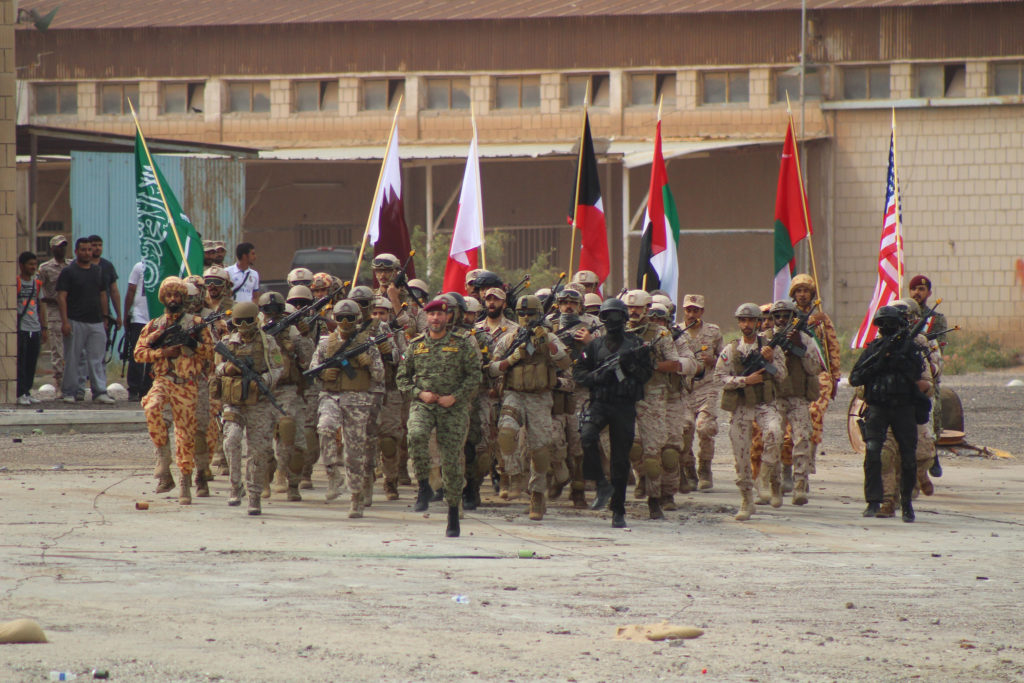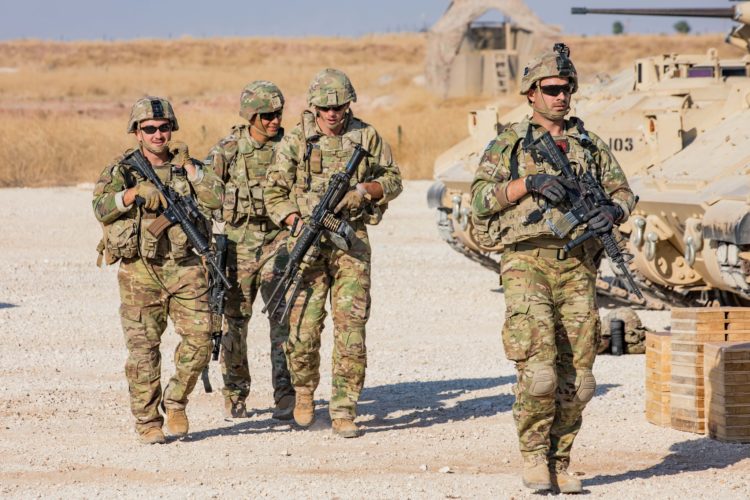Such preparations by the US demonstrate its commitment to protecting its allies in the region should there be any attacks against them by Iran or its affiliates who have recently ramped up their activities near Gulf waters. Moreover, the capabilities of the US, including intelligence gathering and surveillance assets, provide an invaluable layer of security for these nations while they continue modernizing their forces domestically to better stand up against external threats.
Any potential conflict between Iran and the US or its allies would be prolonged and complex given Tehran’s ability to leverage regional proxies like Hezbollah or Hamas when necessary, along with its own conventional military power it has built over decades of development programs despite sanctions from Washington. This makes it even more critical for both sides to ensure stability through diplomatic dialogues whenever possible while continuing forward with plans for increased defense readiness if necessary, as well as building stronger partnerships among friendly states to keep tensions from escalating further than they already have been due recent actions taken by Iran’s Revolutionary Guard Corps (IRGC).
“There has been no other moment in time in which the prospect for meaningful integration is more real than today,” she said. “It’s both because of that alignment of threats that I just went through. And it is also because of emerging technology and the culture of innovation that Centcom [US Central Command] is fostering together with its partners.”
At the working group, Stroul reported that the topics discussed included:
- The current condition of air and missile defense systems.
- The potential for increased intelligence sharing and early warning.
- Analyzing partners’ systems and capabilities to construct a more efficient layered air defense.
“When it comes to maritime security, [U.S. Naval Forces Central Command] is doing incredible work today, expanding maritime domain awareness and bringing together partners through its combined task forces to address threats that we hear from our partners are of tremendous concern,” Stroul said.
Preparing Against Iran-Russia Hostilities
The contentious relationship between the United States and Iran has been a source of regional tension for decades. The increasing involvement of Russia in the region has only heightened this tension, leading to speculation that the US should be cautious when dealing with Iran, especially in light of Russia’s core alliance with Tehran.
The U.S.-Iran relationship is complex, but one of the most pressing concerns for American policymakers and military strategists is that Iran’s access to advanced military equipment from its allies may threaten regional stability and American security interests. According to Iranwatch, Iran once again ignored the agreement on weapons development, including the agreement on nuclear weaponry.
The return of the six prior resolutions would represent a major shift in the international legal status of Iran’s nuclear and ballistic missile activities. On the nuclear side, the demands of resolution 1737 would come back into force. Specifically, Iran would be required to immediately suspend all enrichment and reprocessing activities, suspend all work on heavy water-related projects (except the conversion of the Arak reactor), and ratify and implement the Additional Protocol to its Comprehensive Safeguards Agreement with the IAEA.
On the missile side, the language of resolution 1929 that Iran “shall not undertake any activity related to ballistic missiles capable of delivering nuclear weapons” would return. This would be a stronger prohibition compared to that of resolution 2231, which only “calls upon” Iran not to conduct any activity related specifically to those ballistic missiles that are “designed to be capable” of carrying nuclear weapons. Moreover, snapback would prevent resolution 2231’s limitation from sunsetting in October 2023.
Of course, Iran did not fully heed these restrictions at the time they were adopted and would not heed them today.
In addition, Iran’s broader alliances could continue to challenge the United States’ foreign policy objectives. Russia has provided economic and technical expertise and political backing for Tehran’s nuclear program, making it more difficult for Western powers like America to influence Iranian policy decisions through sanctions or other diplomatic measures. This increases the prospect that an Iranian nuclear weapon could become a reality in just a few years, potentially further destabilizing an already fragile region and exacerbating tensions between Washington and Tehran.

The Gulf Cooperation Council (GCC) is also deeply concerned about Iran’s growing ties with Russia, particularly given their mutual support for Syrian President Bashar al-Assad during his civil war against rebel groups attempting to overthrow him. The GCC nations fear this alliance may embolden Iran politically while providing them with cutting-edge military technology that could threaten their security interests.
Aaron David Miller, Global Fellow at the Wilson Center think tank in Washington DC, warns that the United States needs to take full account not only of what Russia is doing today but also what it might do tomorrow on behalf of its client states—including Iran—in ways that challenge US, European Union (EU) or Israeli interests.
“Biden may have a harder time avoiding the Middle East in 2023 and beyond, though. The administration’s top foreign-policy priorities remain Russia’s war against Ukraine and a rising China. Yet Biden may soon have his hands full with smaller yet determined regional powers eager to advance their own interests and unwilling to play by US rules. With five states—Syria, Iraq, Lebanon, Yemen, and Libya—in various stages of dysfunction, the Arab world will remain a source of instability, with the exception being wealthy Persian Gulf states (Saudi Arabia and the United Arab Emirates) that are acting with greater independence from Washington while insisting on US support,” he wrote.
This highlights why American policymakers must be wary when dealing with Tehran, given the complexity of their relationship with Moscow and other regional actors outside their control, such as Israel or Saudi Arabia. By understanding these potential avenues for strategic competition between great powers such as America and Russia, American decision-makers can better formulate policies that consider all potential contingencies moving forward.










COMMENTS